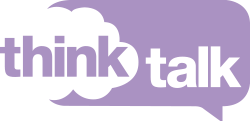Firstly, we are designed for talk. Speaking and listening are innately human skills in a way that reading and writing will never be. Secondly, we are innately tribal, social animals. We learn best in a social medium. So learning in a group – having a classroom full of students, or a senior management team – is part of the answer, not the problem.
Secondly, deep understanding does not only emerge through dialogue, it is constructed through it.
Thankyou, Mr Socrates.
By giving our students practice in talking with others, we give them frames for thinking on their own.
Lev Vygotsky
Talk is the quickest and most efficient way for a teacher to take a snapshot of his or her class’s understanding, and it is also is the most powerful means of encouraging that class’s thinking to adapt and improve. For ‘students’, we could easily substitute the word ‘teachers’, or ‘human beings’. The paradigm is true for us all.
Teachers in a healthy school live in a state of open self-questioning that is not debilitating, but motivating. Why so? Because it is a collaborative scepticism. Development becomes a state of mind. This is easy to say, not easy to achieve. Noisy and off-task classrooms remain a challenge, but silent ones are equally problematic in their own way.
The quality of an institution lies in the quality of its discourse: at all levels.
Ken Wilby
Who started my Thinktalk journey? Ken Wilby, Regional Director with the National Oracy Project (1987-93) was my line manager, mentor and general fairy godmother when I first started as an L.A. adviser. Ken’s method and his content were acutely principled and hard to separate. He was a skilled facilitator who never resorted to being directive. He would scaffold our team to define an issue and support us to reason through the possible solutions – and their relative plausibility. That’s how great classrooms work. The kids don’t do all the work, but they are thinking so actively that they often don’t notice the expert facilitator who is shepherding them through the process, acting as guardian to their learning. This is the paradigm for being an adviser to which I have aspired. Interestingly, the latest reviews of research in to what makes great teacher development seem to be aligned with this.
‘Expertise external to the group of participating teachers is necessary to challenge existing assumptions and develop the kinds of new knowledge and skills associated with positive outcomes for students.’ (see Timperley 2008)
The next stage in the Thinktalk journey? Well the breadcrumb trail continued from Professor Robin Alexander’s dialogic talk, to Neil Mercer’s Thinking Together, to Douglas Barnes and Michael Halliday who took me back to Jerome Bruner, who took me back to Vygotsky. Name dropping? No – just joyful reminiscence.
Language not only manifests thinking but also structures it. Professor Robin Alexander
The struggle for expression – the effort of really trying to pin down exactly what you think and feel with precision and elaboration – over time – helps us to lay down and strengthen synapses in the brain. Talk that is triggered by a puzzle, then is extended through further collaborative enquiry is an educationally transformative medium.
That’s why I believe in Thinktalk. If I have learnt anything as a teacher, leader, adviser, it is that harnessing the power of talk to transform thinking is not easy. Any paper or presentation by Professor Alexander admits the difficulty and invites the profession to embrace this. He is still fighting for oracy to be at the core of our national curriculum and policy (see here.) For the moment, however, teachers and schools will have to do it alone.
And now to the final stage in my journey – the pot at the end of the rainbow! Well, it felt more like coming home…making a connection with Laurie Smith at King’s College London. In early 2013, Laurie, and his co-lead tutor Michael Walsh, were just bringing the Let’s Think in English Cognitive Acceleration programme, based at King’s College London, out of its research and development phase. And it is as a result of their generosity, skill and patience that I have been able to stay close to the Let’s Think construct and am now a recognised Associate Tutor. Let’s Think distils Vygotsky and Piaget and a heavy helping of liberal, democratic values into a powerful educational intervention. See here for the home website.
Is English just about Thinktalk? Is it all about thinking, about reasoning processes? Is there no knowledge base? More of this in my next post. Let’s just say for now that knowledge without reasoning is no better than reasoning without knowledge.
Welcome to Thinktalk.


